One of the highlights of our first consortia workshop was the opportunity to recognize the great work that our consortia partners have been doing to promote ORCID adoption in their region. Here we share the awards made to five consortia who have gone above and beyond in their support for ORCID.
The awards – and the individuals who accepted them on behalf of their organizations – are:
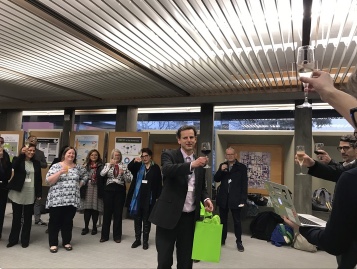 Neil Jacobs on behalf of Jisc (UK) – for being a kickstarter. Neil encouraged Jisc to run with a promising ORCID pilot model, bringing the pilot together with ARMA. The pilot engaged the UK research community with a small grants program, had truly inspired and effective project management, and – among other things – developed a framework for cost-benefit analysis. Jisc have openly shared their approach and results, and have made themselves available for consultations with nascent consortia.
Neil Jacobs on behalf of Jisc (UK) – for being a kickstarter. Neil encouraged Jisc to run with a promising ORCID pilot model, bringing the pilot together with ARMA. The pilot engaged the UK research community with a small grants program, had truly inspired and effective project management, and – among other things – developed a framework for cost-benefit analysis. Jisc have openly shared their approach and results, and have made themselves available for consultations with nascent consortia.
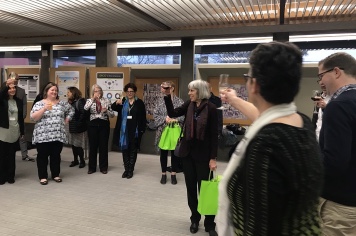 Paola Gargiulo on behalf of CINECA (Italy) – for toolbuilding.. CINECA developed the concept and technology to centrally manage a national ORCID integration. They started with a consortium of 74 (!) universities, supported at the Rector and Ministry level. From their ORCID pilot, they provided a time-savings analysis showing a substantial decrease in research and administrative burden for their national research evaluation program.
Paola Gargiulo on behalf of CINECA (Italy) – for toolbuilding.. CINECA developed the concept and technology to centrally manage a national ORCID integration. They started with a consortium of 74 (!) universities, supported at the Rector and Ministry level. From their ORCID pilot, they provided a time-savings analysis showing a substantial decrease in research and administrative burden for their national research evaluation program.
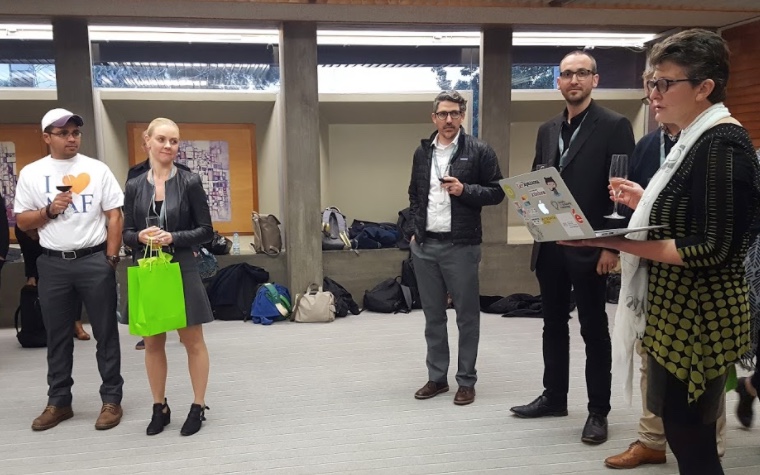 Melroy Almeida and Elleina Filippi on behalf of AAF (Australia) – for inspired engagement. The Australians are amazing at community-building! They worked patiently – doggedly – over two years to engage across their research sector, ultimately developing joint ORCID policy statements from library, IT, and research office associations; the national data center; and funding bodies. They developed a consortium governance and cost-recovery model and, with this broad buy-in, AAF were able to bring on two staff to manage a consortium of 40 organizations. They continue to produce high-quality communications materials, and have been very generous in sharing their experiences with nascent consortia.
Melroy Almeida and Elleina Filippi on behalf of AAF (Australia) – for inspired engagement. The Australians are amazing at community-building! They worked patiently – doggedly – over two years to engage across their research sector, ultimately developing joint ORCID policy statements from library, IT, and research office associations; the national data center; and funding bodies. They developed a consortium governance and cost-recovery model and, with this broad buy-in, AAF were able to bring on two staff to manage a consortium of 40 organizations. They continue to produce high-quality communications materials, and have been very generous in sharing their experiences with nascent consortia.
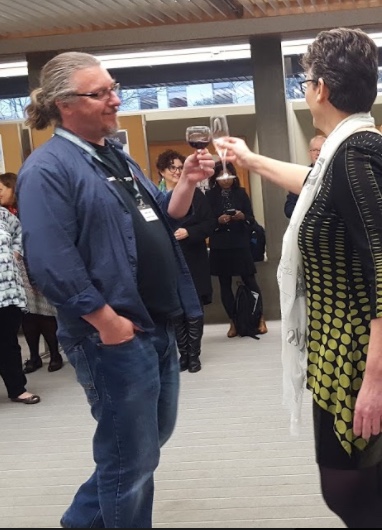 Jason Gush on behalf of the Royal Society Te Aparangi (New Zealand) – for inclusiveness. The Royal Society Te Aparangi supported the development and launch of a national open research policy that includes ORCID as a major component. This laid the framework for a national ORCID project aimed at including ALL research institutions, no matter their size or technological capabilities. The New Zealand ORCID Hub is a Royal Society-led open-source project to develop a central platform for enabling affiliation and funding assertions – with the goal of being useful for any ORCID consortium.
Jason Gush on behalf of the Royal Society Te Aparangi (New Zealand) – for inclusiveness. The Royal Society Te Aparangi supported the development and launch of a national open research policy that includes ORCID as a major component. This laid the framework for a national ORCID project aimed at including ALL research institutions, no matter their size or technological capabilities. The New Zealand ORCID Hub is a Royal Society-led open-source project to develop a central platform for enabling affiliation and funding assertions – with the goal of being useful for any ORCID consortium.
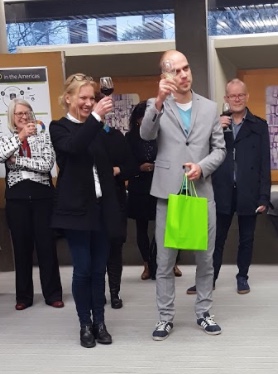 Britta Dreyer and Paul Vierkant on behalf of TIB (Germany) – for attention to detail. Everyone asked, and TIB delivered, an exhaustive legal analysis of ORCID’s privacy policy, working with us on the details and then making the analysis publicly available. Germany has perhaps the most stringent personal privacy regulations, so passing the bar in their jurisdiction is a strong indication of the work we have done to earn the trust of the community.
Britta Dreyer and Paul Vierkant on behalf of TIB (Germany) – for attention to detail. Everyone asked, and TIB delivered, an exhaustive legal analysis of ORCID’s privacy policy, working with us on the details and then making the analysis publicly available. Germany has perhaps the most stringent personal privacy regulations, so passing the bar in their jurisdiction is a strong indication of the work we have done to earn the trust of the community.
